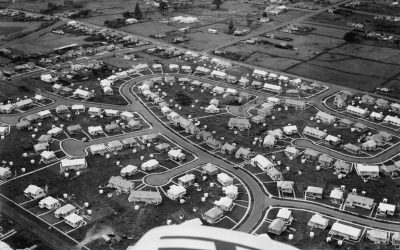Metro Vancouver is one of the five least affordable cities to buy a home among major markets in half-a-dozen countries, largely because of “prescriptive” land-use policies, according to survey by a group of land-use consultants.
These “prescriptive” policies, the consultants argue in the Demographia International Housing Affordability Survey, including British Columbia’s Agricultural Land Reserve, restrict the supply of land available for building homes and drive up prices.
Metro Vancouver sits fourth on Demographia’s 2009 list of least affordable cities, with a median house price at 8.4 times the median income.
Demographia defines affordable home prices as three times a city’s median income or less.
Victoria, at seventh, Kelowna, at 19th and Abbotsford, at 25th, also made the list of “severely unaffordable” markets.
The Demographia report noted that there are fewer American cities on the 2009 least-affordable list compared with the 2008 list because of declining prices. The cities to see the steepest price drops across all nations were the ones that saw prices rise the highest and fastest.
Metro Vancouver fell behind Gold Coast in Australia, at No. 3, Honolulu, Hawaii, at No. 2, and Australia’s Sunshine Coast, which is in top spot on the least affordable list.
Demographia surveyed Canadian cities with metropolitan populations of more than 100,000, and 10 of them made it on the list of “most affordable,” with Winnipeg being the largest of them.
The survey was conducted by Wendell Cox, an urban-planning policy consultant who has done work for groups including the Frontier Centre, a Winnipeg-based think-tank, and Hugh Pavletich, a New-Zealand-based commercial property developer.
The researchers, along with urban planning professor Shlomo Angel who wrote a preface, are releasing the report today. In it, they argue for loosening of regulations that limit the amount of land available for urban development.
Protecting green spaces, either to conserve farm land or create parks, “is indeed a lofty and sensible goal,” Angel writes in the preface, but “the protection of open space is not without cost.”
Although planners try to use the higher cost of land to encourage higher density and the creation of more compact cities, Angel argues that few residents in existing neighbourhoods of such cities support increasing density.


